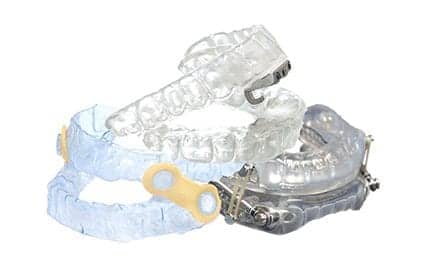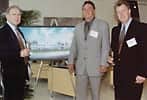The hearts of 100 patients with sleep apnea are being monitored in a new trial to help researchers understand why they are more likely to die from heart disease.
The British Heart Foundation awarded the University of Warwick and the University Hospitals Coventry and Warwickshire NHS Trust nearly £265,000 to carry out the research over three years.
The most common way to treat obstructive sleep apnea (OSA) is with a continuous positive airway pressure (CPAP) machine. Although CPAP can help improve sleep and means people with OSA feel less tired during the day, research has shown that using the machine doesn’t decrease the risk of heart disease.
Atrial Fibrillation
Scientists now want to find out whether this is because patients with OSA are more likely to have arrhythmias, including the most common rhythm disturbance called atrial fibrillation.
Atrial fibrillation happens when the electrical impulses in the top two chambers of the heart fire chaotically when they should be steady and regular, causing them to quiver or twitch (fibrillation). Although atrial fibrillation on its own may not be dangerous, it can lead to an increased risk of stroke, heart failure, or other heart-related problems if left undetected and untreated.
To study the link between OSA and atrial fibrillation, the scientists will monitor the heart rhythms of patients by implanting tiny devices called implantable loop recorders under their skin. They will also use other methods including Holter monitors, which are portable devices that monitor heart rhythms.
All participants in the trial will be treated using a CPAP machine as part of their usual care, and the study includes a control group of another 100 patients who will use the machine but not have their hearts monitored.
Monitoring Patients’ Hearts
Lead researcher professor Faizel Osman, MD, consultant cardiologist/electrophysiologist at the University Hospitals Coventry and Warwickshire, says in a release that it was hoped that by closely monitoring the hearts of their patients, they would be able to observe abnormal heart rhythms in a way that wouldn’t otherwise happen.
“We know that the pickup rate for AF [atrial fibrillation] in patients with OSA is traditionally very low, but with this trial, we’re planning to get, for the very first time in the world that I am aware of, an accurate idea of exactly what the prevalence rate is,” he says in the release. “We hope that by the end of the trial to know what the true rate of atrial fibrillation and other arrhythmias is in these patients and be able to prove that this is something that is happening to people with OSA but isn’t always discovered. This would mean that heart monitoring could become more routine for those at risk who present with OSA with the very real potential to save lives.”
The patients taking part in the trial, all living in the Coventry and Warwickshire area, have been chosen because they have OSA but, at the start of the trial, do not have any known heart rhythm problems.
Keen to Help Researchers
One of the patients taking part in the trial is Leo Smith from Nuneaton in Warwickshire. Leo, 70, said he has had OSA for as long as he can remember, although he only had it officially diagnosed recently.
Leo, who lives with his wife, Angela, said that although the condition itself didn’t really impact his life, he was keen to help the researchers find out what the longer-term implications could be on hearts.
“I fall asleep, I stop breathing, then I start breathing again. And I wake up, and I have no idea anything has happened,” he says in a release. “But I don’t know what it does to my heart, and this is the reason why I have had a loop recorder implanted under my skin.”
Leo, who has health issues not related to OSA or his heart, including a collapsed spine, only discovered he had OSA when he was in the hospital for other treatment, and the clinical staff panicked when he stopped breathing under general anesthetic.
“Although I myself have a strong heart, I do have a lot of other health problems, so I am the sort of person that never says no to anything the medical professionals want to do to me,” he says in the release.
Photo 166596427 © Vvoevale | Dreamstime.com





